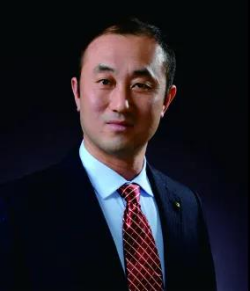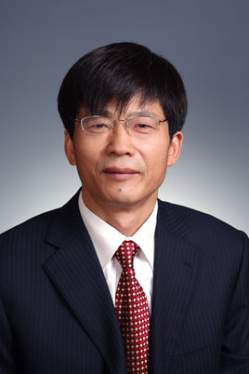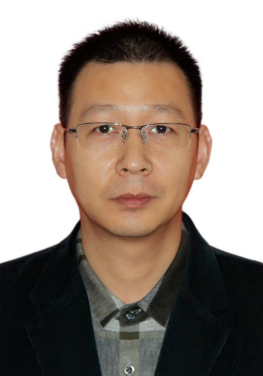- Frontiers of Machine Learning
- Multimodal Large Language Model and Generative AI
- Smart Earth Observation and Remote Sensing Analysis: From Perception to Interpretation
- 3D Imaging and Display
- Forum on Multimodal Sensing for Spatial Intelligence
- Brain-Computer Interface: Frontiers of Imaging, Graphics and Interaction
- Foundation Models for Embodied Intelligence
- Workshop on Machine Intelligence Frontiers: Advances in Multimodal Perception and Representation Learning
- Human-centered Visual Generation and Understanding
- Spatial Intelligence and World Model for the Autonomous Driving and Robotics
- Seminar on the Growth of Women Scientists
- Video and Image Security in the Era of Large Models Forum
- ICIG 2025 Competition Forum
- Visual Intelligence Session
Machine learning is the art of discovering unknown patterns and rules from known data. How to achieve better learning outcomes at lower costs remains a centralchallenge in the field. With the rapid development and application of machine learning techniques—particularly in the domain of computer vision—traditional learning algorithms have continued to evolve, while various deep learning methods have emerged and matured. This workshop will bring together leading experts in the field to share their latest research, summarize recent advances in core problems related to machine vision and learning, and explore promising future directions.
Schedul
Oct. 31th 13:30-15:30
Organizer

Yisen Wang
Peking University, Professor
Biography:
Yisen Wang is an Assistant Professor at Peking University. His main research interests lie in machine learning theory and algorithms, with a current focus on theoretical and safety issues in large models. He has published over 60 papers in top-tier ML conferences such as ICML, NeurIPS, and ICLR, many of which were selected as Oral or Spotlight presentations. He has received the Best Paper Award at ECML 2021, Best Paper Award at ICML 2024 Workshop, Silver Best Paper Award at ICML 2021 Workshop, and a Best Paper Nomination at ICLR 2025 Workshop. He also serves as a Senior Area Chair at NeurIPS.
Presenters

Dongsheng Yang
Northeastern University, Professor
Biography:
Dongsheng Yang is a Distinguished Professor of Liaoning Province, and IET Fellow. He serves as Vice Chair of the Energy Internet Equipment and Technology Committee of the China Machinery Industry Federation, member of the CAA Energy Internet Committee, Secretary-General of the IEEE (China) Transformer Committee, and Secretary-General of the Liaoning Province Society for Electrical Engineering's Energy Saving Committee. His main research interests include digitalization of energy systems and AI control of the energy internet. He has led more than 20 major projects, including a National Natural Science Foundation key project and a national key R&D task. He has published over 200 papers, 45 of which are SCI indexed, and holds more than 120 patents. He has received the National Science and Technology Progress Award (2nd Class, Rank 2) and seven provincial/ministerial awards.
Speech Title: Machine Learning-Based Condition Analysis and Safe Operation in the Power Industry
Abstract:With the rapid development of distributed generation, microgrids, smart electricity use, EVs, and energy storage, the direction of power flow in power grids has changed from unidirectional to multi-directional, significantly increasing the complexity of grid operation and posing new safety challenges. This talk introduces a novel hybrid data- and model-driven framework for early fault detection in power equipment, featuring a deep adversarial learning-based signal enhancement module that leverages operational data from different statuses and timeframes. It also proposes an anomaly-detection-based enhanced fault identification algorithm that facilitates early fault diagnosis through degradation modeling. The framework establishes a theoretical foundation for early warning systems in industrial engineering.

Huanshui Zhang
Shandong University of Science and Technology, Professor
Biography:
Prof. Huanshui Zhang's research spans optimal control theory, stochastic systems, time-delay systems, networked control systems, and multi-agent systems. He has published over 300 papers, including more than 100 in top journals. He received his Ph.D. from Northeastern University in 1997 and became a full professor in 1999. He has held professorships at Harbin Institute of Technology and Shandong University, and was appointed as one of the first Taishan Scholars in Shandong. He received the National Science Fund for Distinguished Young Scholars in 2008 and was appointed as a Changjiang Scholar by the Ministry of Education in 2010. He is currently a Distinguished Professor at Shandong University of Science and Technology and has served on the editorial boards of several prestigious journals including IEEE TAC.
Speech Title: Optimal Optimization Methods and Applications
Abstract:Optimization is a cornerstone of applied mathematics and a fundamental tool across engineering and information sciences. Traditional algorithms such as gradient descent and Newton's method each have pros and cons: gradient descent is stable but slow, while Newton's method is fast but may diverge. This talk introduces a novel optimization algorithm based on optimal control theory. By treating iteration updates as control variables and minimizing a combination of future objective values and control energy, the method ensures both convergence speed and stability. After linearization via Taylor expansion, the algorithm reduces to a computationally efficient iterative method with provable superlinear convergence and robust performance. It generalizes many classical algorithms and is applicable to control system tracking, 3D image recovery, power flow analysis, and AI-based image restoration.

Xinghua Li
Xidian University, Professor
Biography:
Xinghua Li is a Professor at Xidian University, recipient of the National Science Fund for Distinguished Young Scholars. He serves as Vice Dean of the School of Cyber Engineering and holds multiple leadership roles in national laboratories and engineering centers. He received the 2019 National Cybersecurity Excellent Teacher Award and numerous provincial-level honors. Prof. Li has led key projects under the National Natural Science Foundation and national R&D programs. He holds over 50 national and international patents and has contributed to multiple standards. He has published more than 100 academic papers in venues such as CCS, Usenix Security, and IEEE TDSC, and is listed among the top 2% of scientists globally.
Speech Title: A Universal Symmetric Encryption Framework for DNNs Based on Adversarial Examples
Abstract:This talk presents a new universal symmetric encryption framework for deep neural networks (DNNs), using adversarial example techniques to generate ciphertext images. Combined with newly designed image-based keys, the framework achieves symmetric encryption resistant to both cryptographic and deep learning attacks and satisfies IND-CCA security. It is compatible with a wide range of standard DNNs while preserving their original functionality and parameters, offering a novel integration path between DNNs and modern cryptography.

Sijie Ruan
Beijing Institute of Technology, Associate Researcher
Biography:
Dr. Sijie Ruan’s research focuses on spatiotemporal data mining and its applications in social intelligence governance, intelligent epidemic prevention and control, and urban computing. He has led several national and provincial-level projects, including the National Natural Science Foundation of China and sub-projects of the National Key R&D Program. He has published over 50 high-quality academic papers, including in CCF Class-A venues.He serves as Senior Area Chair for KDD 2026, Forum Chair for ICDE 2024, and in other roles for top international conferences. He was selected for the CIE Outstanding Doctoral Dissertation Incentive Program and has received awards such as the First Prize for Technological Invention from the Chinese Association of Command and Control, the ACM SIGSPATIAL China Best Doctoral Dissertation Award, and the Championship of the IJCAI 2025 Journey Planning Challenge.
Speech Title: Efficient Urban Sensing to Empower Intelligent Society
Abstract:Urban sensing collects city-wide data to detect the pulse and rhythm of urban life, providing essential data support for an intelligent society. Traditional urban sensing relies on deploying geographic sensors and assigning personnel to collect data, which leads to high equipment and labor costs. The advancement of positioning technologies and the accumulation of massive multimodal data offer unprecedented opportunities for efficient urban sensing. However, leveraging these data also faces several challenges, including large localization errors, low data quality, and skewed sample distributions.
This talk focuses on the sensing requirements of two core types of information in urban environments: static geographic information and dynamic state information. It introduces efficient urban sensing methods from three perspectives: crowdsensing, multimodal inference, and correlation modeling. By leveraging existing urban resources, these methods aim to enhance the coverage, data accuracy, and real-time performance of urban sensing, thereby empowering smart city development and refined urban management.

